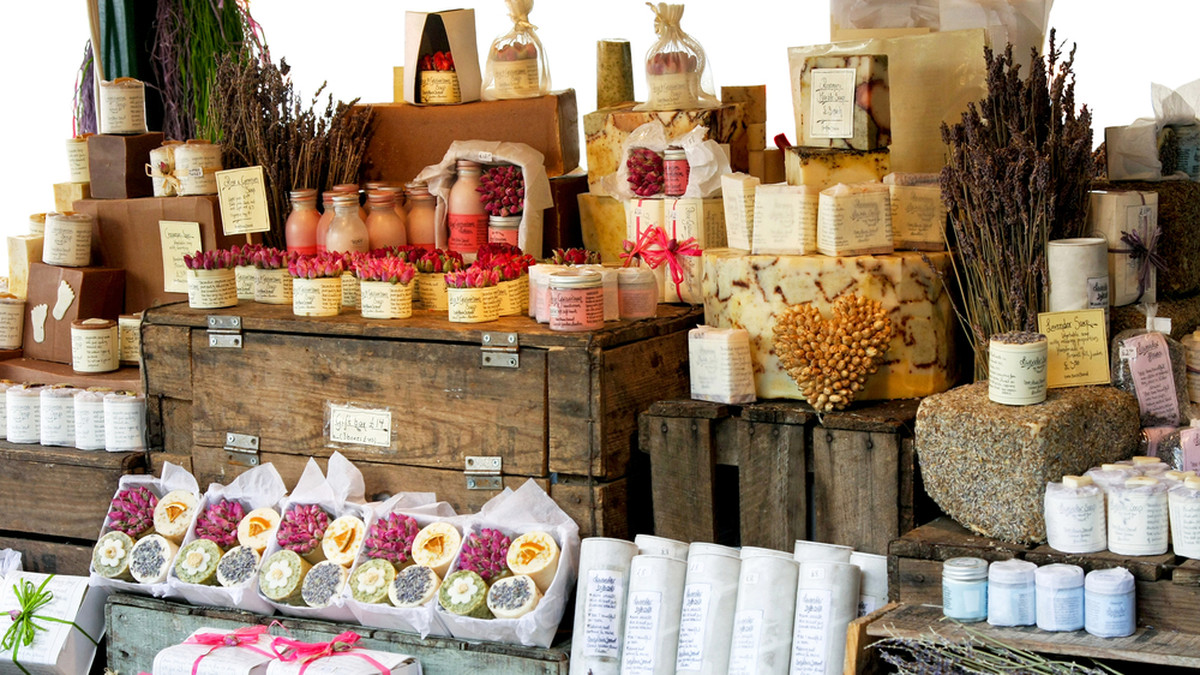Expo West, and Epson, are all about entrepreneurship, says ColorWorks PM Andy Scherz
“When we go to a tradeshow like the Natural Products Expo West,” says ColorWorks product manager Andy Scherz, “people stop by, look at what we’re showing and say, ‘You mean I can buy this little machine and make product labels myself? I can skip the long lead times, the high prices and the waste that can occur with traditional offset printing? And I get this kind of quality?’
“Yes!” I reply. “ColorWorks may be a small desktop printer, but it can bring big dreams to market.”
Powering small businesses
Expo West is the largest natural, organic and healthy products event in the United States, taking place every March at the Anaheim Convention Center in California.
This year Epson showed our new Epson SurePress L-6534VW,on-demand color label printer, the ColorWorks C6000 desktop label printer, a live label applicator demo, the new OmniLink® TM-L100 liner-free thermal label printer and sample labels created by SurePress® digital label presses.
The ColorWorks printers are especially helpful in the Natural Products industry, Scherz explains, where many companies are very small, serving a specific market niche or geographical region. “The business owners are very passionate about their products, and it’s a very dynamic marketplace. Even the companies that are large and well-established have to be nimble, much more so than in other industries.”
Scherz believes that putting a custom label onto some sort of standard container, pouch or tray is the way to go for a start-up company or one introducing new products frequently – the machines needed to create custom packaging are just too expensive for a small business. “If you stay with labels, you can switch to faster, higher-capacity ColorWorks printers as your sales grow, adding accessories that automate the production process.”
The ColorWorks® C4000 is perfect for this kind of company, because it costs less than $2,000 (MSRP) yet can print up to 2.76 inches of full-color labels per second. Business owners get excited when they see this machine, because sending labels outside for production can be a huge roadblock to innovation.
Creating packaging in-house
“You have so much information on the packaging these days,” Scherz explains. “There’s your brand name and logo, use-by date, ingredients, maybe nutrition or allergy warnings and other regulatory information. Once you create a design, you have to send the label, the box, or the pouch to a shop for production and may have to wait up to three or four weeks to get them back. If you make a mistake or something has to change, then it’s even more time to have them reprinted, and of course, if you run out, you can’t ship anything.”
Another problem is the quantity required for economical production. Typically there are huge price breaks, per impression, with orders of 10,000 – 20,000, and so business owners tend to stock up. “But the thing is, if you have 50 SKUs, that’s 10,000 – 20,000 labels or packages for each one, and now you have a significant storage requirement. Worse, you may be very reluctant to tweak an ingredient, because now you’re either going to throw away thousands of packages or wait a for every change.”
If, instead, the business buys its own label printer, it can make a product change every day. And if an item takes off and sells way more than expected, it has no worries at all about printing delays. “We have clients who change their labels constantly, just to react to what’s going on in the local community,” Scherz says. For example, one adds a pink ribbon to its labels for breast cancer awareness, but only during October. Another creates custom labels for retailers who sell her products under their own brand names.
“We have a number of customers who create custom labels for product prototypes,” Scherz adds. “If you need just 10 labels, that’s OK – but if you need 1,000, then you print 1,000.” The nice thing, he adds, is that “you choose your machine based on the total volume you’ll do each month – not the volume for each product, because you can mix and match as you wish.”
And Epson caters to almost any size customer. At the upper end is the Epson SurePress L-6534VW, which is almost totally automated and can print up to 1.99 million inches of labels each month, and the L-4533AW, which can print on plastic film up to 13.14” wide for flexible packaging, as well as labels.
Scherz believes there’s an ongoing trend toward smaller and more customized products tailored to individuals or small groups. “The biggest competition to Budweiser is not Coors or Miller, but the craft brews produced by smaller, independent companies.” In Natural Products, customers appreciate a small, uniquely-flavored honey or a lip balm tailored to their particular tastes or allergies.
“Today, if I can make my runs smaller, if I can be more nimble in bringing new products to the market, I can be more successful,” he adds. “But if my speed to market is limited by an extended printing and storage process, that’s a very painful delay.
“Fortunately, Epson on-demand printing is here to help keep entrepreneurial companies booming.”
